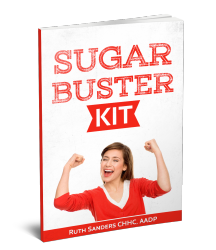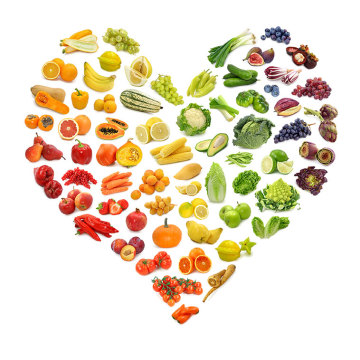
Fatigue
Anxiety
Insomnia

($97 value)
(included in your kit)
*Are you addicted to sugar?
(take this quiz to find out)
*My report on the top 10 ways to
Tame Your Sugar Monster
*Free Sugar Blues audio teleclass
recording
*Bonus: Free subscription to my newsletter
filled with tasty, healthy recipes and
useful tips for your good health
*I will never share your email address
-
When was the last time you received the personal attention you deserve and talked with someone about your health? -
No one diet works for everyone
I will guide you to find the food and lifestyle choices that best support you. I will also help you to make gradual, lifelong changes that enable you to reach your current and future health goals. -
Could one conversation change your life?
Schedule an initial consultation with me today!

It’s rare for anyone to get an hour to explore their wellness goals with a trained professional. As an Integrative Nutrition Health Coach, I create a supportive environment that enables you to articulate and achieve your goals. Throughout my education, I have been exposed to the most cutting-edge dietary theories and studied highly effective coaching techniques to help you find the right lifestyle that works best for you.
Most approaches to healthy eating dwell on calories, carbohydrates, fats, and proteins. Instead of creating lists of restrictions and good and bad foods, I coach my clients to explore basic improvements and implement gradual changes during our work together. As these pieces accumulate, my clients find the changes collectively create a much larger impact than they originally expected. We work on what you want to improve, and within the circumstances of your unique situation.
Are you addicted to sugar? According to Julia Ross, when sugar was first refined it was kept under lock and key and was called "crack."
When big business found out about it they had dollar signs flashing in their eyes. Here was a substance that was cheap and addictive.
In 1800, each American consumed 18 pounds of sugar in one year. Now that number has reached 130 pounds each year
How is it addictive?
1. It lights up the same place in the brain as cocaine.
A new study has shown that sugar lights up the same reward- addiction area as cocaine, or any other addictive drug.
2. Too much causes glucose levels to spike, creating a desire for more.
The body is only made to have 4 grams (1 teaspoon) of glucose in the blood at any one time.
There are 43 grams of sugar in just one 12-ounce can of soda.
If you ingest too much of this or refined carbohydrates (which turn into sugars) at one time, the body has to deal with this excess. Your body secretes a hormone from the pancreas called insulin, which keeps your blood sugar regulated by sending it to the areas of your body
When you ingest too much, over time, one of 2 things happens:
1. The pancreas starts over-reacting and shunting too much glucose out of the blood which results in a condition call hypoglycemia, or low blood sugar.
2. Your cells can be come resistant to insulin and you can develop diabetes because the glucose stays in the blood.
Plus, the excess is still turned into fat in both conditions. "How's that?" You might wonder. Say you eat a doughnut (10 grams of sugar), and then later in the day, you have a candy bar (24 grams of sugar). Your body is frantically trying to deal with this. The pancreas overreacts and the blood sugar gets a little low. You don't have the high any more so you grab a cola or another candy bar. This shoots your blood sugar level up again and the whole thing starts over. If you don't get your "sugar fix," you are tired, irritable, and can't think straight.
So how does this become an addictive cycle? The more sugar you eat the less you taste the sweetness. And as your body continues to go through these blood sugar swings, damaging your cells, you need more and more to even feel normal.
When you consume complex sugars and carbohydrates such as fruits, vegetables and whole grains, and reduce or eliminate simple sugars and carbohydrates such as donuts, sweetened drinks, and white flour products, your blood sugar is regulated and you won't be craving the simple sugars anymore. You will no longer be addicted to this substance and will have all the energy and clear thinking you need to have a productive and happy life.
Ready to start feeling enough energy to enjoy your life? If you have any questions, I would be glad to answer them. Here is where to contact me .
Ruth Sanders
Certified Health Coach
You don't need some exotic, expensive "superfood" to have great health.
My Top 10 Everyday Superfoods
1. Berries
Raspberries contain ellagic acid, a compound with anti-cancer properties. Blueberries are packed with anthocyanins; antioxidants that may help keep memory sharp as you age.
2. Nuts
Nuts are rich sources of heart-healthy unsaturated fats. Walnuts’ high mono- and polyunsaturated-fat content also helps reduce total and “bad” LDL cholesterol levels while maintaining healthy levels of “good” HDL cholesterol.
3.Sweet Potatoes
Sweet potatoes are so brilliantly orange thanks to their alpha and beta-carotene. The body converts these compounds into the active form of vitamin A, which helps keep your eyes, bones and immune system healthy.
4. Cruciferous Vegetables
Cruciferous veggies such as broccoli and kale contain sulforaphane, a type of isothiocyanate that is thought to prevent cancer by helping to stimulate the body’s detoxifying enzymes.
5. Spinach
Spinach is 67% folate, which lowers homocysteine, a factor in heart disease and stroke.
6. Avocado
Avocado contains high levels of pantothenic acid or B5, which helps break down fat and is a mood stabilizer.
7. Apples
Containing the nutritious fiber known as pectin, apples are an incredible food for your brain and body. They have been linked to a lower body weight, lower cholesterol, an improved mood, and improved heart health.
8. Carrots
Carrots are a great source of beta-carotene (Vitamin A), Vitamin C, potassium, magnesium, and other antioxidants for your immune system and skin health.
9. Celery
Celery is one of the best foods for lowering your blood pressure. Two studies at the University of Illinois show that a powerful flavonoid in celery, called luteolin, inhibits the growth of cancer cells, especially in the pancreas. Another study suggests that the regular intake of celery could significantly delay the formation of breast cancer cells.
10. Beets
Beets are great for your liver. If your liver is sluggish you may experience chronic headaches, fatigue, digestive problems, constipation and many other problems
My clients love taking charge of their health and avoiding constant doctor's visits and reliance on prescription drugs. If you would like some support in gaining vibrant health, contact me to set up a Free "Get Back your Health" strategy session.
Ruth Sanders
Certified Holistic Health Coach

